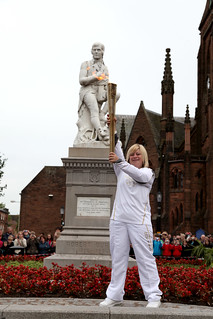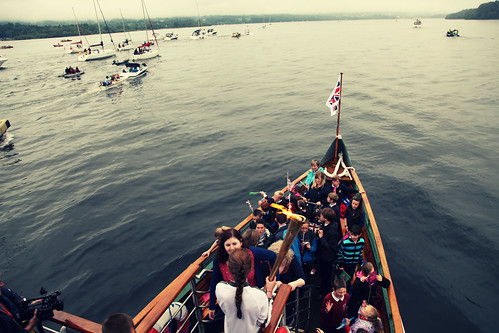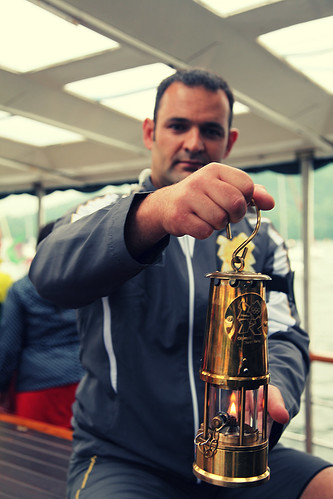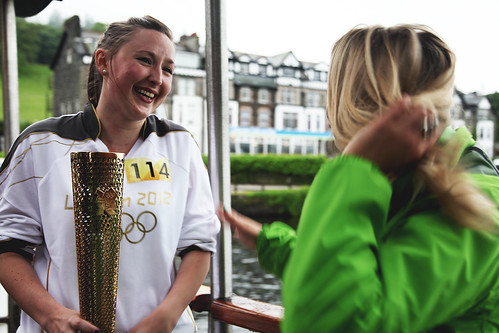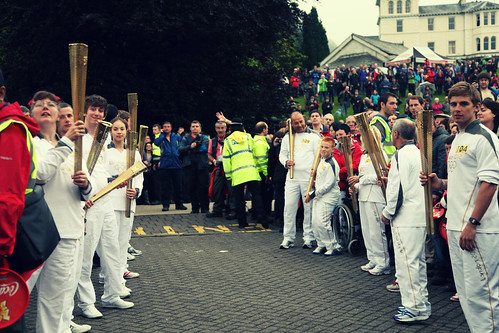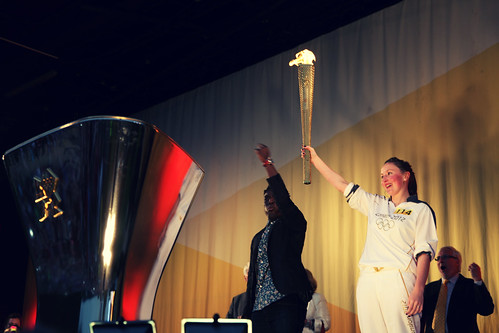The Olympics are upon us, you’ve charged up your mobile, you’ve wiped down your iPad, you have no data limits. Now, what should you do to make sure you don’t miss out on crucial information as the Games begin?
Here’s a quick guide to some of the key Twitter accounts that are worth following, but don’t forget to use Twitter lists and hashtags as a filter for information. It's not everything, but not a bad start. If there's anything significant I've missed, drop me a line!
The best way to do this is to discover which hashtags are beginning to trend around any particular event. It might be #100m or #archery, but you’ll find the best one by searching among your Twitter peers. Most likely, #London2012 will be far too populated to function effectively, but #London2012Festival might be a good tip for cultural activity.
The Organizers
@London2012 ‘the management’ – LOCOG’s primary account, a bit too much stuff
@SebCoe ‘the boss’ - not many personalized tweets, but the top guy at LOCOG
@IamWenlock ‘the Olympic Mascot’
@IamMandeville ‘the Paralympic mascot’
@AlexBalfour2012 ‘the social media guy’ – LOCOG’s Head of Social Media, if the website goes down, blame Alex.
@London2012Fest – official account of the London 2012 Festival. If you don’t have a ticket for any sport, or even if you can’t get to London for the Games, then this is a good place to start, as you can participate in a range of cultural activities taking place wherever you are over the next 2 months.
@RuthMackenzie – Director of London 2012 Festival and a recent Twitter convert, good content, tweets, and replies.
@paulwoodmansey – PR for London 2012 Festival. If it’s on, Paul is there!
The IOC
@olympics – the main IOC account, not much engagement, but good links to Olympic family people (athletes, etc)
@AlexHuot – the IOC’s Social media Director, plugs into SXSW and other cool camps
The Help
@L2012Spectators - for travel advice, especially for ticket holders
@VisitBritain – in case London gets too much, find out what is happening elsewhere in the UK during the Games
The Culture
Remember that the Olympics are not just about sport, there are 12,000 cultural events happening around the Games period, many of which are free.
@ArtistsLead – Artists taking the lead is a series of major commissions around the UK, try to see them all for a really breath taking experience
@LegacyTrustUK – whether you knew it or not, there has been a lot of Olympic & Paralympic activity in your region funded by Legacy Trust. While their account is not very active, their links will take you to activity taking place in your region.
@thespacearts – perhaps the most innovative project of any Olympic Games ever, a collaboration between the BBC and Arts Council England to revolutionize broadcasting of cultural events
@edfringe – ok, it’s not really London 2012, but there is other art stuff happening during the Games, you know!
The Athletes
@TeamGB – scroll through who they are following to find your Olympic hopeful or hopeless
@ParalympicsGB – the primary account for British Paralympian team.
@TomDaley – not a swimmer, a diver!
@OscarPistorius – ‘the blade runner’ making history by qualifying for the Olympic Paralympic Games
@ChrisHoy – cycling legend
@MatthewCPinsent – rowing veteran
@SkeletonAmy – zooms down hills at the Winter Games
@NickSymmonds – the World’s most social media savvy athlete. Auctioned space on his left shoulder on eBay to fund his career. Winner would have their Twitter handle tattooed there during 2012.
@JDE66 –Jonathan Edwards, triple jump world record holder and overall London 2012 ambassador
Also check out the IOC’s Athlete Hub, which takes you to social media links for athletes: http://hub.olympic.org
The Media
@BBC2012 – the principal account for the London 2012 BBC team
@RogerMosey – Director of the BBC 2012 programme, follow him for a more personal insight into what the beeb are doing
@NBCOlympics – at the Beijing 2008 Games, the NBC Twitter list was the most followed worldwide and NBC partnered with Twitter to create a great guide to the Games for tracking athlete data.
@PearceSport – the BBC’s sport anchor James Pearce, always in the thick of things
@C4Paralympics – for the first time, Channel 4 are broadcasting the Paralympic Games. Check in with this account for their contribution
@InsideTheGames – novel news start up for 2012
The Sponsors
Not all of the sponsors have Twitter profiles, but here are some examples that have generated a lot of activity. You can also visit the Olympic Sponsor pavilions when the Games begin.
@BPLondon2012 – Cultural Olympiad premier partner
@CadburyUK – expect free, Olympic themed chocolate
@CokeZone – Coca Cola has a number of Olympic twitter ids, this is the one for the Torch Relay, for which it is presenting partner. Keep an eye out for their pin trading id, to participate in the unofficial Olympic sport.
The Activists
@GamesMonitor – the Olympic & Paralympic watchdog, keeping tabs on all
@CounterOlympics – planning coordinated action on 28th July in London
@DropDowNow – campaign against Dow’s sponsorship of the Olympic Games
@Moratorium2012 - Stop the Arrests - campaign to stop sex worker arrests in London during Olympics
@NoSochi2014 – connect with the emerging protests around the Sochi 2014 Games
@OccupyOlympics – will there be an Olympic occupation during the Games? If so, this account will let you know.
@OlympicBoycott – the official protestors whose DIY protest t-shirts captured LOCOG’s attention
@OlympicMissiles – protesting the situation of missiles on residents’ homes
@OurOlympics – reclaiming the Games from the corporations
@ReclaimTheBard – the Reclaim Shakespeare Company, campaign against BP involvement in the Cultural Olympiad
@SpaceHiJackers (the people behind the Official Protestor campaign)
In addition to these, here are some accounts that I'm using
@andymiah - my personal account
@media_2012 - for some of the alternative news from the #media2012 network
@CulturalOlympic - for all the cultural news
@emoto - a data visualization of Twitter emotions (I'm a collaborator)





![The Olympics: The Basics [Russian edition]](https://images.squarespace-cdn.com/content/v1/563face7e4b06c325c739ba9/1447019579986-DITAF1GDLXI9VYX6A6V1/image-asset.jpeg)


















